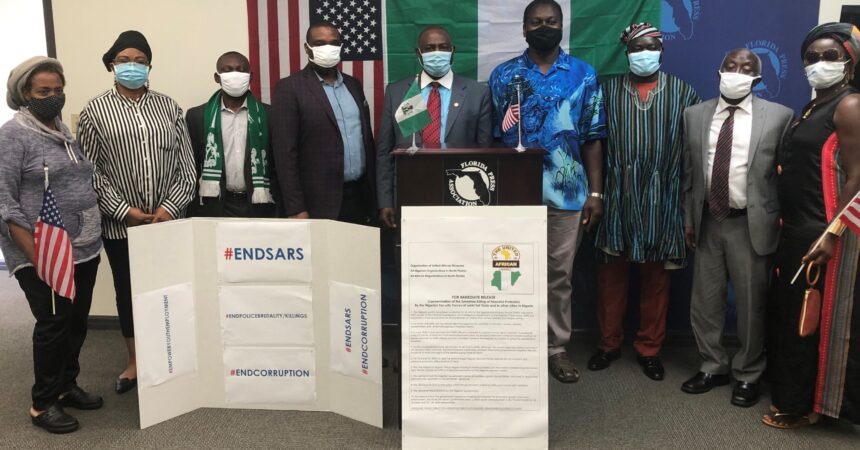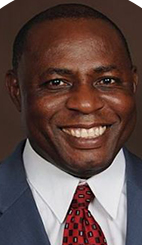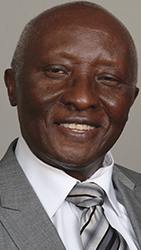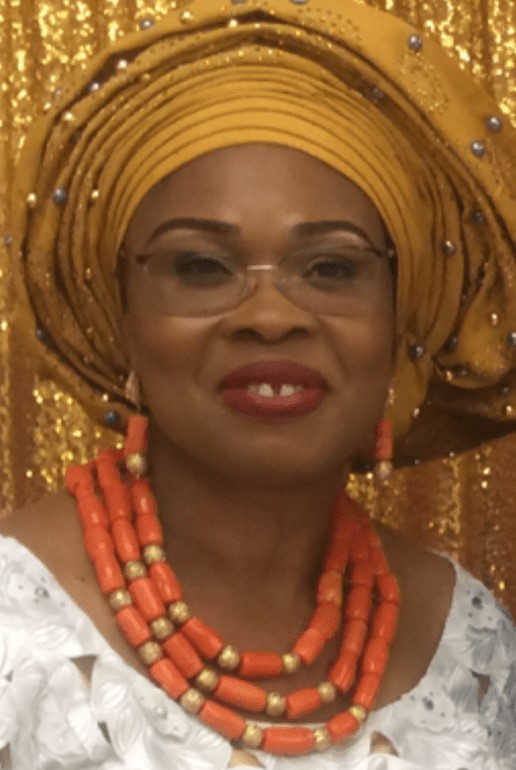
African group with Tallahassee ties demonstrate against police brutality in Nigeria



By St. Clair Murraine
Outlook staff writer
Insisting that she has to carry on the legacy of her daughter’s fight for the disenfranchised, Victoria Momoh-Salau, is helping a local group of Africans in a world-wide call for justice and fairness.
“I have to keep her legacy,” said Momoh-Salau, mother of Oluwatoyin “Toyin” Salau. “I have to keep fighting. I cannot allow my daughter’s voice to be silent. I will continue to fight until all lives matter to those in power. This is my motivation.”
Momoh-Salau stated her stance against systemic racism and police brutality during an exclusive interview with members of the Organization of United African Diaspora, a North Florida coalition of mostly Nigerians. The organization is anchored in Tallahassee, where it recently staged a demonstration in front of the Capitol over police brutality on protesters in Nigeria.
Members of the organization, which is the revival of a similar group that was formed 10 years ago but became defunct, said they were inspired by Toyin, a Black Lives Matter activist. She was one of the most vocal among a group of protesters in Tallahassee following the death of George Floyd while in police custody last May.
The 19-year-old was found dead in June after being missing for a week. Her death was ruled a homicide.
Ironically the Organization of United African Diaspora has been actively condemning police brutality in Lagos, Nigeria. They are especially concerned about the death of at least 10 people who were protesting the use of excessive force by officers on the country’s Special Anti-Robbery Squad (SARS).
Amnesty International has been monitoring the situation that has been reported worldwide by the media since last month.
The Tallahassee-based United African Diaspora, which has members throughout North Florida, recently held a press conference at the Florida Press Center that was followed by the demonstration at the Capitol.
“We wanted the world, Leon County and our fellow Africans to hear and see that demonstration,” said Peter Okonkwo, a Tallahassee engineer who is president of the Association of Ndiigbo and founder of the Organization of United African Diaspora. “We made our voices heard. We expressed our displeasure.”
Members of the group that also includes Olu E. Sawyer, a retired engineer with the City of Tallahassee and chairman of Bond Community Health Center board of directors, said they will also use diplomacy to bring about the change they are seeking in their country. They’ve already been in touch with politicians in Florida to get their message to the government of their homeland.
Organization members are optimistic they would have an impact, citing that there are an estimated 20,000 Africans living in North Florida. Most of them are professionals such as professors and business owners, who are contributors to the quality of life in their communities.
What Africans bring to their communities has helped to remove barriers, Momoh-Salau said.
“Our accent does not in any way interfere with our ability to connect with our fellow Americans, whether White Americans or Black Americans,” She said.
Seemingly, the organization is getting plenty of backing for its approach to the crisis that protesters face in Africa, Sawyer said.
“We are taking concrete action to make sure that this issue is properly addressed,” said Sawyer. “We are beyond protest.
“We want to very strongly foster the feeling of being our brothers’ and sisters’ keepers.”
Their effort is part of a worldwide mission to condemn brutality on protesters in Nigeria, Okonkwo said.
“There are other Nigerian groups all over the United States also protesting and writing letters to the government and the politicians,” he said. “We are keeping our leverage with our local politicians who we’ve created good relationships with to assist us to carry our message to the Nigerian government to do good by these citizens.”







